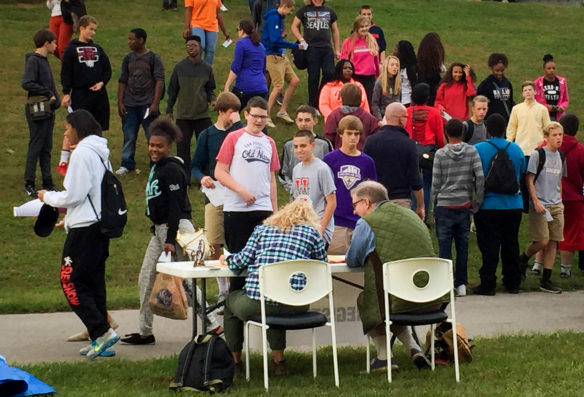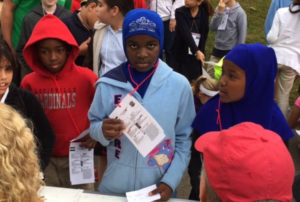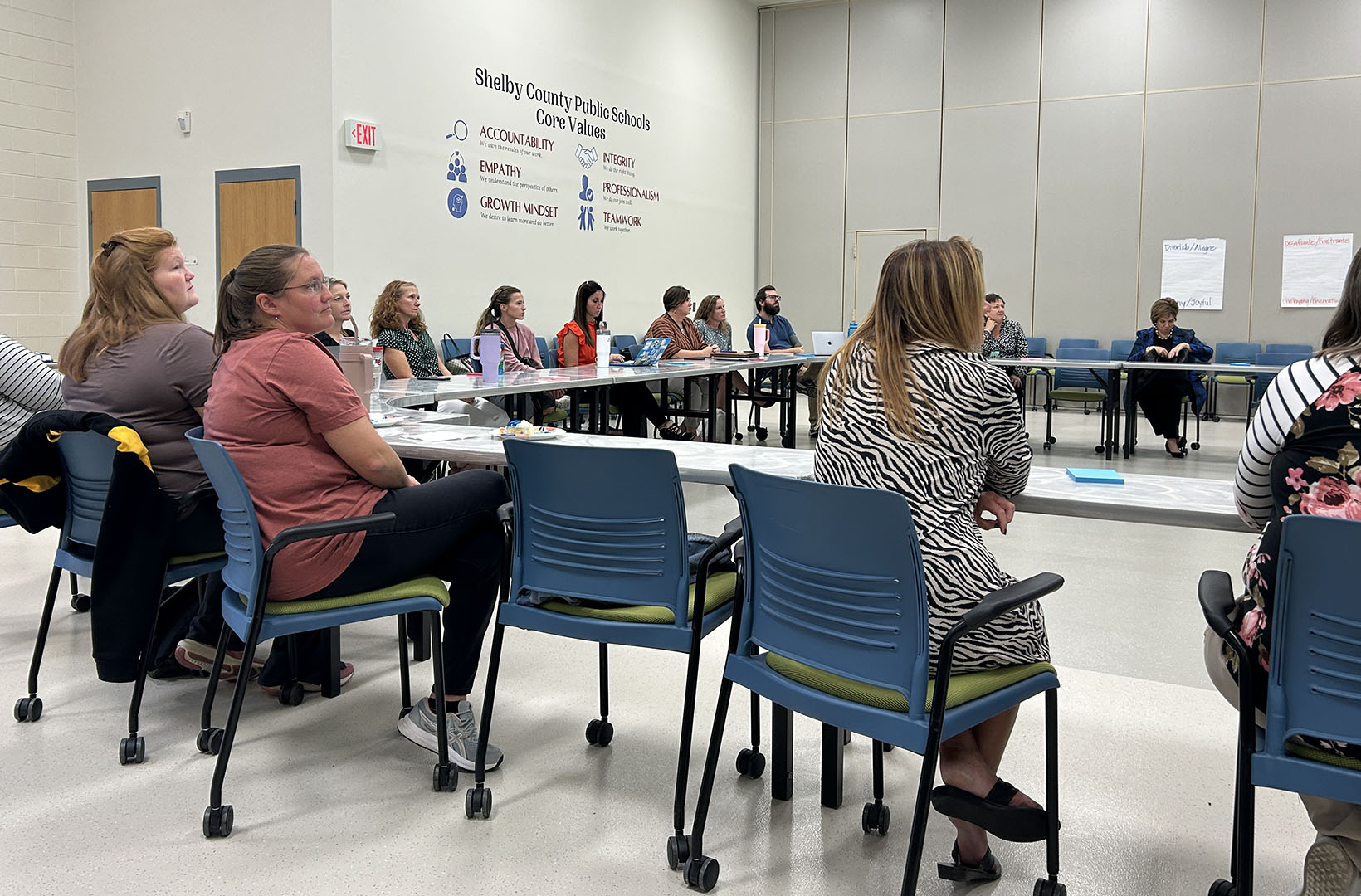
More than 900 students participated in the Walk-A-Mile In My Shoes: A Mock Migration Simulation at Waterfront Park in Louisville last October. The annual migration simulation, coming up again on Oct. 7, creates a powerful experiential learning opportunity for adults and students to better understand the causes and challenges of migration.
Photo courtesy of Jud Hendrix
By Jud Hendrix
judhendrix@globalhumanproject.net
More than 900 students participated in the Walk-A-Mile In My Shoes: A Mock Migration Simulation at Waterfront Park in Louisville last October. The event had a powerful effect on those students.
“I never realized how difficult it must have been for you to flee from your home and to come to a place where you don’t know anyone or speak our language,” an 8th-grader said to an Iraqi refugee helping debrief her experience.
The annual migration simulation, coming up again on Oct. 7, creates a powerful experiential learning opportunity for adults and students to better understand the causes and challenges of migration. The simulation was developed and hosted by The Global Human Project as part of its Global Classroom.
Jeremy Renner, principal of Goldsmith Elementary School (Jefferson County), brought the simulation to his school for teacher professional development.
“The Mock Refugee Camp was a powerful and moving experience for the staff of Goldsmith Elementary,” Renner said. “The facilitators had us moving about the school grounds and simulating various experiences, such as bartering for food and being separated from loved ones. In the end very few of us actually ‘resettled,’ which of course mirrors the reality that refugees face.

The Global Human Project conducts a mock migration simulation each year in Louisville. Participating students and adults undergo all of the steps real refugees go through, with very few actually ending up “resettled” by the end of the event.
Photo courtesy of Jud Hendrix
“While we all knew it was just a few hours and we all knew that we would return to reality soon enough, something about physically moving from one station to the next, being rejected and lied to and ultimately, being disappointed with not being resettled, made the experience moving and life-changing. While it has been about three years since the experience, I have teachers to this day ask when we are going to repeat it and others who begin to tear up when we discuss the experience.”
The Global Human Project utilizes a comprehensive formation model that integrates cultural proficiency training, global awareness education and active community engagement. Through mutual relationships with local internationals, especially refugees and immigrants, the Global Classroom invites participants to open their minds and hearts to the beauty and complexity of cultural diversity and global issues.
One of the key concepts to the GHP’s Global Classroom is its 3-2-1 learning process. This kind of transformational learning requires more than reading about other cultures from a textbook. It happens as we connect our heads, hearts and hands through a mutual encounter with others and shared community engagement. Face-to-face relationships and the stories of our new international neighbors are the project’s textbooks.
The 3-2-1 learning pedagogy moves learning from a third-person perspective (where participants learn information about the historical contexts, culture characteristics and integration challenges of immigrants and internationals), to a second-person perspective (where participants learn from face-to-face mutual encounters with their new neighbors), to a first-person perspective (where participants are able to critically reflect on their own perspectives, cultural norms and stories). This integrative process has proven to be successful in creating globally informed and engaged citizens.
Here are several upcoming events offered by The Global Human Project for teachers and educators:
- “Becoming WelcomeVille: Conversation and Innovation For A More Welcoming Louisville,” 9 a.m.-noon Sept. 2
Bring your high school students to WorldFest 2016 for a creative conversation and social innovation process to help cultivate a more welcoming and empowering Louisville. Students and foreign-born Louisvillians will spend the morning in a creative process to envision and help create Louisville as the most welcoming city in the world. Schools can bring up to 50 students. For more information and registration, email Jud Hendrix.
- ”Walk-A-Mile In My Shoes: A Migration Simulation”
There are two ways to experience this powerful empathy education simulation.
- Bring your middle school class to Waterfront Park in Louisville on Oct. 7. For more information, contact Amory Alvey.
- Bring the simulation to your school. For more information, contact Jud Hendrix.




Leave A Comment